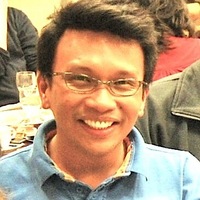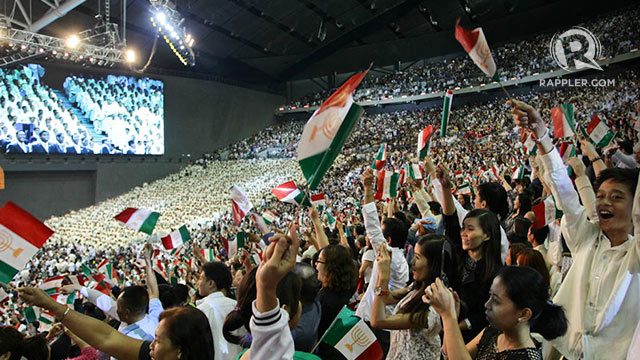SUMMARY
This is AI generated summarization, which may have errors. For context, always refer to the full article.
 There is now no doubt that Christianity has shifted to the Global South. The overflowing religious events of various Christian movements and denominations in many parts of Africa, Asia, and Latin America, stand in stark contrast to the majestic but empty cathedrals of Europe.
There is now no doubt that Christianity has shifted to the Global South. The overflowing religious events of various Christian movements and denominations in many parts of Africa, Asia, and Latin America, stand in stark contrast to the majestic but empty cathedrals of Europe.
Such shift is also accompanied by moral and theological conservatism that often manifests itself in terms of resistance to homosexuality, reproductive health, and divorce among other issues. Christianity in the Global South is also characterized by the aspirations of many of its followers for upward mobility, which explains their discipline and resistance to a wasteful lifestyle. While these may all refer to Charismatic or Evangelical Christianity, these wider trends are also reflected in the rise of Iglesia ni Cristo as a formidable Christian organization in the Philippines.
But I propose that there is more to INC than the usual stereotypes or theological criticisms hurled at its leaders and members. Much has been said about how sectarian INC is, how its followers are brainwashed, or how unacceptable its doctrines are. While these are open for discussion, I think public opinion over INC is still colored by the religious majority. Whenever INC is discussed, its beliefs, for example are contrasted to the teachings and practices of the Roman Catholic Church. These discussions in the end render INC as another heretical organization whose doctrines have long been rejected by the Christian mainstream.
The global stage
While such theological discussions deserve their own space, they also miss the point about INC’s social location 100 years since its foundation. Like it or not, INC has arrived not just in the local but the global stage too. In fact, this may have happened under many people’s noses. Today, INC can no longer be considered a minority religion that the religious majority could effectively dismiss as irrelevant or worse, a dangerous cult.
In the Philippines, the neo-gothic architecture of INC’s churches is a familiar sight even in the most remote communities. With 5,500 congregations, INC claims to have a membership of more than 2 million. Of course, its sheer size alone, coupled with a doctrine of ecclesial unity, makes it a strategic political ally. It is not surprising then that INC’s massive medical missions and evangelistic gatherings are sometimes perceived as rallies that implicitly support certain political figures.
But even more importantly, INC has set its eyes on the global stage. Present in over a hundred countries, it is now among the fastest growing Christian churches in the world. While it has its national headquarters in Quezon City, INC has already established main offices in London for its European outreach and in California for the US.
And it is making another mark in the most ostentatious way possible.
Philippine Arena

Not many realized that the Philippine Arena and its bigger complex, the Ciudad de Victoria, were being prepared to commemorate INC’s 100th anniversary. And commemorate they did when they inaugurated the largest indoor stadium in the world, valued at $213 million. No less than the Philippine President graced the opening, even quoting Bible verses that drew the most excited cheers from the crowd.
But something is significantly different with these projects. They are not sheer extensions of their city of spires in Commonwealth. Surrounding the Philippine Arena are parks, a medical center, a football stadium, and the new campus of New Era University. Condominiums and hotels are also envisioned to rise within the complex in anticipation of its new role as a medical, educational, and tourist destination. Behind these developments is an international assemblage of designers and engineers, which include big names in the industry such as Populous, PWP Landscape Architecture, and New San Jose Builders. It is noteworthy that Kansas-based Populous is the architectural group behind such feats as the London Olympic Stadium, Nanjing Sports Park, and Aviva Stadium.
Already, the Philippine Arena has attracted the global attention of various sectors. Discovery Channel has featured it as an earthquake-proof “record-breaking manmade marvel.” Even if it is mainly to accommodate the huge religious gatherings of INC, the Philippine Arena is attracting too entertainment celebrities and sporting enthusiasts looking forward to staging international events in it.
Religious worlding
At its centenary, INC has clearly arrived in a way that many other religions in the Philippines can only be envious of. By constructing the Philippine Arena, INC is redefining what it means for Christianity to shift to the Global South. It has inaugurated not just a building but the very act of what I consider religious worlding.
For scholars Aihwa Ong and Ananya Roy, worlding refers to the strategy of many postcolonial cities to assert their identity and place in the world by showcasing their ability to reshape the urban landscape. One way is by redefining global standards of urban construction that one could easily find now in places like Singapore and Dubai. My idea of religious worlding reflects the same ethos: the construction of physical infrastructures that demonstrate a clear global outlook underpinned by the desire for the superlative and the claim to be a religious center.
What is the implication of religious worlding on Christianity’s shift to the Global South? Christianity in such places as the Philippines is no longer simply about theological or moral conservatism. Through religious worlding, INC attempts to relocate the center of Christianity in the Philippines. In a way, this is not surprising given INC’s claims of being the one true church whose founder is believed to be the messenger from the east.
Sacred and secular
But the novelty of the Philippine Arena is that a world-class site of global spectacle is at once sacred and secular.
At one level, it is a very religious site that redefines what it means to be Christian these days. The Philippine Arena is the new space where followers can experience God who is believed to have chosen the Philippines as the site where His glory will unfold and from which the Kingdom will be reestablished. Reminiscent of the economic behavior of Protestants that the classical sociologist Max Weber documented, there cannot be any better evidence of “100 years of God’s blessings.” In this sense, INC is redefining Christianity to be a triumphalist faith that has already shed whatever virtue one could find in suffering and poverty. Ciudad de Victoria is therefore a very apt name for the entire complex.
But it is also this very triumphalism that renders the Philippine Arena a statement of secular power. Through religious worlding, INC is introducing itself to a global audience as a credible institution that has the resources to muster economic and political influence that the rich and the powerful can no longer neglect.
Herein lies the tension that the Philippine Arena and by extension the INC is faced with. Celebrating its 100th anniversary, INC deserves the recognition for making a mark on world Christianity. But the Philippine Arena to me, while clearly celebratory in its grandeur and purpose, invites not just public felicitations. As a project of religious worlding, the Philippine Arena has made many people reflect on what really constitutes Christianity. Does the Philippine Arena signify INC’s conquest of the world? Or is it the other way around?
Regardless, INC has truly arrived and it is here for the long haul. – Rappler.com
Jayeel S. Cornelio, PhD is the new Director of the Development Studies Program, Ateneo de Manila University. He was a postdoctoral research fellow at the Max Planck Institute for the Study of Religious and Ethnic Diversity in Göttingen, Germany. Some parts of this column are derived from the paper Cornelio presented at the international workshop “Emerging Moral Economies in Southeast Asia” at L’ecole des Hautes Etudes en Sciences Sociales in Paris in June 2014.
Add a comment
How does this make you feel?
There are no comments yet. Add your comment to start the conversation.